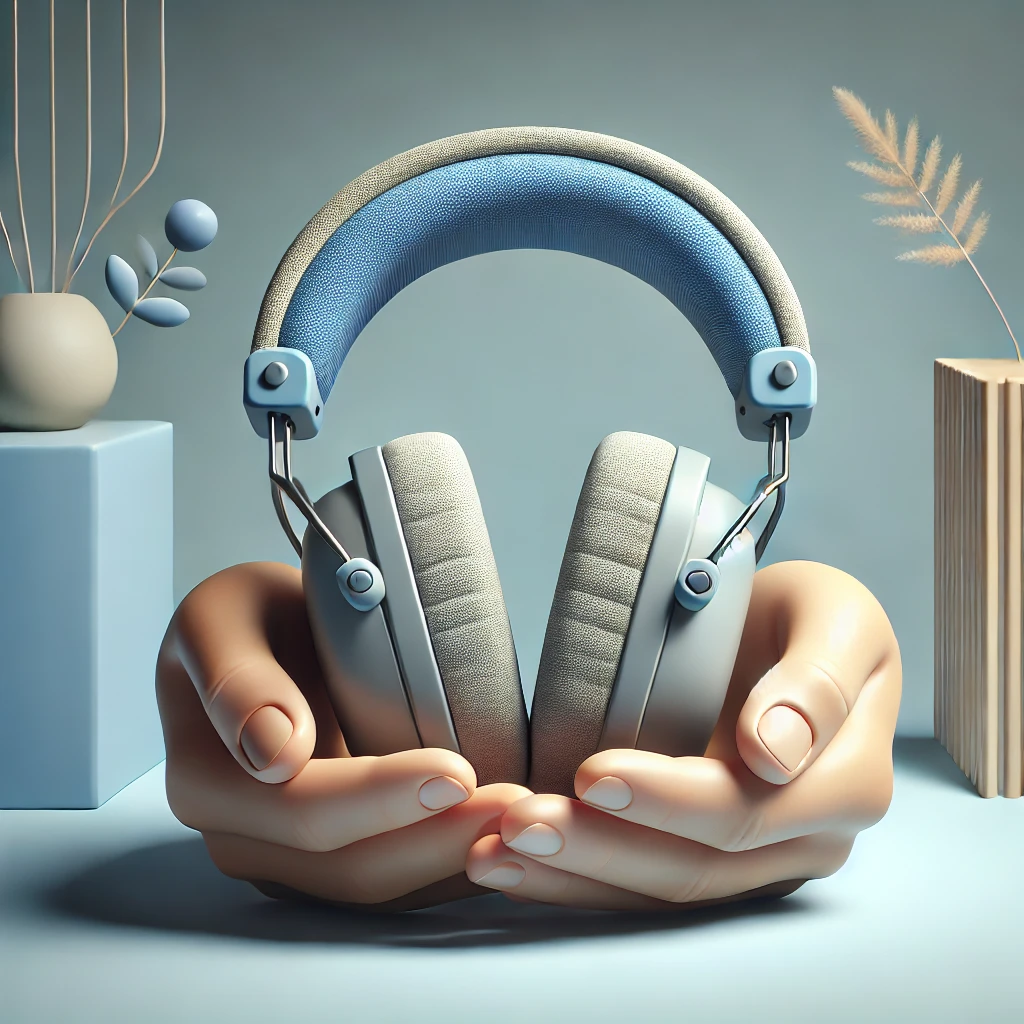Millions of people all over suffer from autism spectrum disorder (ASD), and many of those with autism are especially sensitive to sound. Using autism headphones is among the most efficient ways to control this problem. Designed to offer comfort, lower excessive sounds, and improve attention, these particular headphones assist autistic people negotiate their surroundings more easily.

This post will include all you should know regarding autism headphones. From their advantages and operation to advice on selecting the appropriate pair, we have you covered.
Knowing Sensory Sensitivities and Autism
Before we talk about autism headphones, it is crucial to grasp the sensory difficulties many autistic persons experience. People with ASD frequently struggle with sensory processing. These problems could lead to hyposensitivity or hypersensitivity to different sensory inputs including sound, light, touch, and smell.
For instance, someone with autism could find certain noises, like sirens, alarms, or even background noise in a hectic situation, to be too much and upsetting. In noisy environments, this increased sensitivity could cause anxiety, meltdowns, or a lack of concentration.
Autism headphones fit here. These headphones are meant to solve sensory processing issues by offering comfort from erratic or harsh sounds.
The Function of Autism Headphones
Designed to reduce the effect of sound on the user, autism headphones include three important characteristics:
1. Reduction or Cancellation of Noise
Many autism headphones lower the level of background sounds using active or passive noise-canceling technologies. Active noise-canceling headphones create sound waves to cancel out undesired noises by means of microphones identifying outside noise. Conversely, passive noise-canceling headphones just cover the ears with padded ear cups, hence blocking sound.
2. Fit and Comfort
Autism headphones depend much on comfort. Many versions are lightweight, have adjustable headbands, and have padded ear cups to guarantee they may be worn for long periods without pain.
3. Limiting Volume
Some autistic headphones have features that reduce volume to safeguard the user’s hearing. For children who might lack the capacity to assess the safe loudness levels for their ears, this is particularly crucial.
4. Lastingness
Autism headphones must be robust and able to endure daily use since people with autism may have sensory-seeking behaviours like fidgeting or mouthing objects.
5. Fashionable Designs
Many autistic headphones have interesting, appealing designs that will fascinate both adults and children. Regular use is promoted by this and it enables people to feel at ease wearing them in public places.
Advantages of Autism Headphones
For those with sensory sensitivity, autism headphones provide several advantages:
Increased Concentration
Autism headphones let people concentrate on activities like reading, studying, or participating in talks by shutting out annoying background sounds.
Greater Comfort
Classrooms, airports, or busy areas can be too much for those with sensory concerns. Autism headphones lessen the discomfort these loud settings cause.
Anxiety Decrease
Sensory overload causes many autistic people increased anxiety. By offering a peaceful, calmer audio environment, autism headphones can greatly lower anxiety.
Improved Sleep
Wearing autistic headphones at night can assist create a more serene environment suitable for sleep for those with ASD who find noise disruptions affecting their sleep.
Improved Social Interaction
Autism headphones can assist people control sensory overload, which will help them to make social interactions more tolerable and so improve communication and lower stress at social occasions.
Choosing the Correct Autism Headphones
Choosing the right autism headphones relies on a number of variables. Here is what to think about:
1. Kind of Noise Reduction
Think about whether the user wants active or passive noise reduction. While passive headphones perform well in settings where loud, erratic noises are the primary concern, active noise-canceling headphones are perfect for situations with continuous background noise.
2. Comfort
Search for headphones with adjustable headbands and comfortable ear pads. Especially if the headphones will be used for long durations, comfort is crucial.
3. Features for Volume Limiting
Choose a pair with a volume-limiting function to safeguard their hearing if you are buying headphones for a child or someone who could be sensitive to loud sounds.
4. Travelability
Some autism headphones include a foldable form for convenient storage and mobility, which is crucial for travel or when the headphones have to be carried on the go.
5. Longevity
Select headphones built of premium, strong materials to resist the wear and tear of everyday use.
Best Autism Headphones Currently Available
These are among the top autistic headphones now on the market:
Puro Sound Labs BT2200
To safeguard hearing, these Bluetooth headphones include a volume-limiting feature as well as active noise suppression. They are robust, pleasant, and perfect for kids with sensory sensitivity.
Mimi Loudness
Perfect for people with autism who must shut out surrounding sounds, Mimi Loudness headphones offer great sound isolation and comfort.
3. Bose QuietComfort 35 II
Renowned for its remarkable active noise-canceling qualities, the Bose QuietComfort headphones are a good pick for adults with autism who require concentration in noisy surroundings.
Snug Play+ Children’s Headphones
Designed with a lightweight, adjustable headband, comfortable ear cushions, and a built-in volume limiter, these children’s headphones are excellent for kids who have to control sensory sensitivity.
Em’s 4 Kids Noise Cancelling Headphones
These headphones, made especially for kids with autism, are lightweight and pleasant while still providing good noise reduction.
READ ABOUT:The Complete Guide to Jade Necklaces: Beauty, Benefits, and Buying Advice
Commonly Asked Questions
1. What are autism headphones used for?
Autism headphones are meant to help people with autism concentrate, unwind, and control anxiety by blocking or reducing loud or distracting sounds.
2. Do autistic headphones promote sleep?
Indeed, autistic headphones can assist to establish a quieter atmosphere, which is good for people who find it difficult to sleep because of noise sensitivity.
3. Do kids have autism headphones?
Certainly, several autism headphones are particularly made for kids. For safety, these headphones include soft ear cushions, changeable headbands, and volume-limiting technology.
4. Do autistic headphones mute all sounds?
No, autistic headphones don’t block all sounds; rather, they lower the background noise level to make the surroundings more bearable for the user.
5. May I use adult autism headphones?
Certainly, many autism headphones are made for both adults and children. In loud settings like offices, airports, or public events, they are particularly helpful for controlling sensory sensitivity.
Final Thoughts
For those with sensory sensitivities, autism headphones are a great aid since they offer comfort, focus, and anxiety alleviation in loud settings. To choose the appropriate pair, think about elements such noise reduction kind, comfort, lifetime, and volume-limiting characteristics to identify the ideal choice for your requirements. The correct autism headphones can greatly improve the quality of life for both adults and children by means of sensory overload reduction and daily experience improvement.
